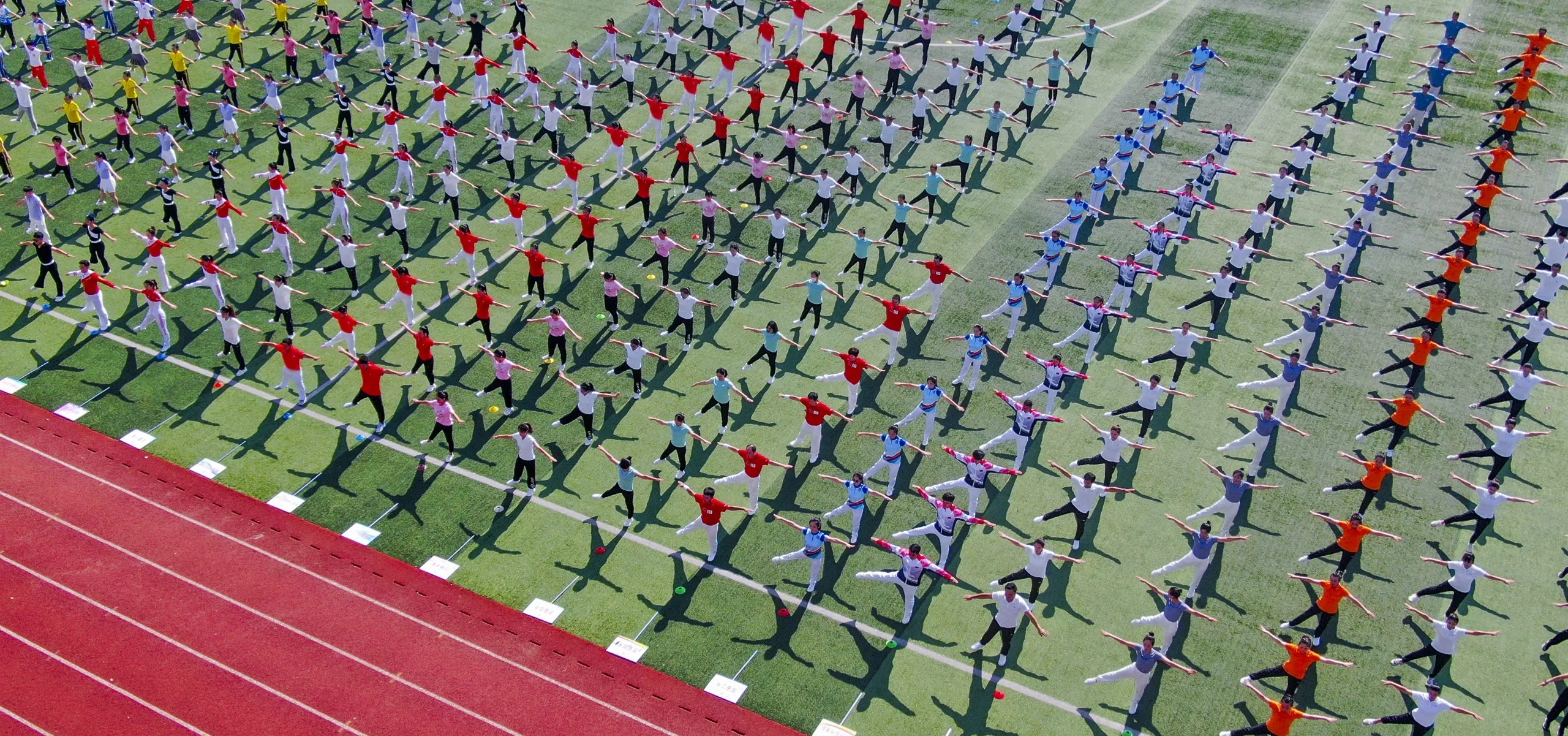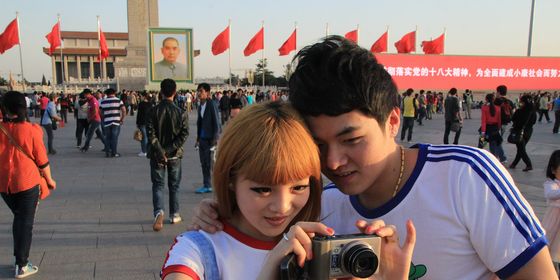How a German tradition from 1803 affects the massage parlors of China today
Whether you find them amusing, annoying or confusing, “broadcast exercises (广播体操),” or radio exercises, are ubiquitous throughout China, and, surprisingly, they are now more prevalent than ever. If you walk past a hair salon, a massage parlor, or a hotel at 9:30 in the morning you can see staff members outside the entrance on the sidewalk, dancing to the music of “My Little Apple” or some other hideous pop song, following a lead dancer of course.
After the dance, they finish up by yelling slogans at the top of their lungs, startling passersby, and, according to some news reports, attracting flying objects from residential buildings overhead. To the uninitiated, it can seem either innocently charming or terrifyingly totalitarian. However, this odd show of worker solidarity dates back at least 100 years.
Such exercises are usually done for the purpose of boosting staff morale, enthusiasm, and solidarity. For those who make a habit of visiting such establishments, the overall experience would seem to suggest that this menagerie of dancing and camaraderie may be in vain; however, the core value of this behavior, rather than taking joy in one’s work, would appear to be a sense of collectivism, loyalty, and, in some people’s opinions, “brainwashing.” Although places like Japan are still famous for this sort of worker exercise, its roots can be found in Germany.













